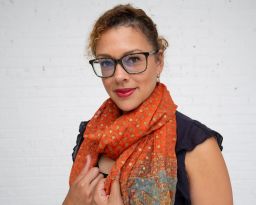Editor’s Note: Tina Sacks is an assistant professor at UC Berkeley’s School of Social Welfare. Her fields of interest include racial inequities in health, social determinants of health, and poverty and inequality. The views expressed here are those of the author. Read more opinion on CNN.
Although the agony of the coronavirus pandemic has dragged on for months, the unprecedented swiftness with which scientists developed a vaccine to combat Covid-19 is nothing short of remarkable. No other vaccine in human history has been created in such ”warp speed.”
But many Black Americans have expressed reluctance to take the vaccine, a wariness some attribute to the enduring legacy of the egregious Tuskegee syphilis study.

The legacies of Tuskegee and Covid-19 are intertwined. Both expose the depth of structural discrimination in the United States. Both remind us to listen and hear patients when they express distrust or reluctance about medical treatment.
The US Public Health Service began the Tuskegee study in 1932. It recruited Black men in Macon County, Alabama, who had already contracted syphilis. The men were told they would be treated for syphilis, but the actual purpose of the study was to learn whether untreated syphilis progressed differently in Black people compared with White people.
The federal government never intended to provide treatment, and though penicillin became widely available in 1943, the men were not treated. At least 28 and perhaps up to 100 men died from syphilis or its complications by the time the study was halted in 1972. Hundreds went on to infect their wives, some of whom then transmitted the disease to their children.
What happened in Tuskegee is even more horrible than the myth.
First, the study had been developed to test the repulsive idea that Black people are biologically different than White people. This idea – suggesting Black people are somehow less than human – has powerful echoes in medical training and practice today. It is easy to see why Black people would assess that differences in treatment persist throughout the entire health care sector, including in the ways Black people have been treated during the pandemic.
There have been numerous reports of Black people being turned away at emergency departments, sent home without having been examined or treated and later dying of the virus. In an August essay about Covid-19 treatment written for the California Health Care Foundation, Dr. Vanessa Grubbs, a nephrologist, noted, “No available data suggest such implicit bias is happening on a large scale and resulting in worse outcomes. But the lack of data is less a sign that the problem does not exist than a reflection of what data we choose not to gather.”
Second, the federal government knowingly withheld treatment for 40 years from the same citizens it was supposed to protect. This critical point bears important lessons for how we go forward from the pandemic.
Black people’s distrust of vaccines – and even at time health care – goes much deeper than the Tuskegee study. We live in a country organized around structural racism. This means Black Americans are less likely to receive the health care we deserve. We are more likely to live in neighborhoods with poor air quality and fewer outlets to purchase healthy food. We are more likely to work in low-paying “essential” jobs that put us more at risk for contracting Covid-19.
All of these factors make us more likely to die of the virus, which is to say we are living with, and dying of, racism.
But now we have a vaccine and a chance to protect ourselves from a deadly contagion that is tearing our country and communities apart. Vaccines have changed societies for the better in the past, and this one has not come a minute too soon. Still, we should approach it with healthy skepticism about potential side effects and serious adverse reactions. Because the vaccine came to market so quickly, we do not have long-term safety studies, and there are still many unanswered questions.
One of the lasting lessons of Tuskegee is that denying medical care is among the biggest breaches of trust between citizens and their governments. We must ensure that marginalized groups like Black, Indigenous and people of color, immigrants, disabled people and people in prison can receive this vaccine. We must also ensure people are allowed to ask questions to make informed and uncoerced decisions about their health care.
Stay up to date on the latest opinion, analysis and conversations through social media. Join us at Facebook/CNNOpinion and follow us @CNNOpinion on Twitter. We welcome your ideas and comments.
As I wait my turn to take the vaccine, I will be learning everything I can about it. I long for an end to the loneliness and grief the pandemic has wrought, and I believe the vaccine is one step in the right direction. Although the distrust of many Black people is absolutely warranted, we suffer more from not getting access to life-saving treatments than being injected with nefarious vaccines.
We have seen time and time again that vulnerable people, and obviously Black people, are at the back of the line when it comes to access to care. I hope the rollout of the Covid-19 vaccine does not repeat these sins.
CNN’s Don Lemon and Dr. Sanjay Gupta explore vaccine hesitancy in the Black community on CNN TV’s “The Color of Covid: The Vaccines” Friday, December 18 at 10p ET.


